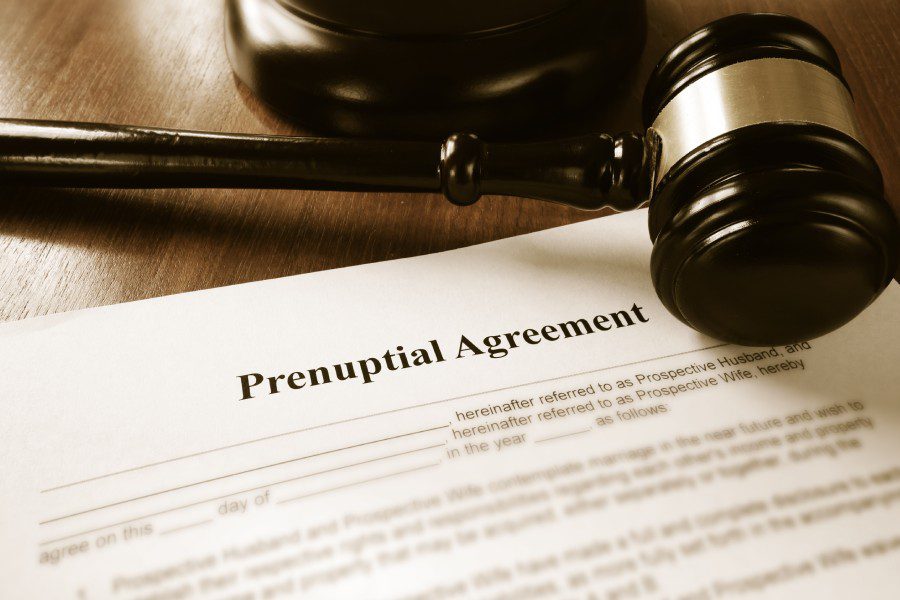Prenuptial agreements are essential for couples looking to build a clear and stable foundation for their marriage. When drafting your agreement, it’s important to consider various legal requirements, including the 7-day rule prenup California.
Keep reading as we delve deeper into the history and significance of the seven-day rule for prenuptial agreements in California.
7 Day Rule Prenup California
A prenuptial agreement is a legally enforceable arrangement between two people planning to marry. It covers various financial provisions, including division of assets, debts, and spousal support. To ensure the enforceability of the prenup, it must follow the legal requirements, including the waiting period. What is the waiting period for a prenuptial agreement in California?The waiting period is a distinctive feature of the prenuptial agreement procedure in California, known as the “7-day rule”. In California, the 7-day rule mandates that each party must have at least seven days to review the final draft of the prenuptial agreement before signing it.
Failing to follow this rule by rushing the process or skipping the review period can lead to the agreement being invalidated. This could nullify protections for both parties, like asset division or spousal support. Consulting a prenup attorney in California ensures compliance and strengthens the agreement’s enforceability.

Why was the 7 day rule established?
California is one of the states that adopted the Uniform Premarital Agreement Act (UPAA) in 1986. The UPAA outlines the legal requirements for drafting a prenuptial agreement.
According to California Family Code § 1615 (c)(2)(B), both parties must have at least seven full calendar days to review the terms and seek legal counsel before signing. This rule was introduced as an amendment to the state’s family code in 2020.
The seven-day rule for a premarital agreement promotes fairness and transparency by ensuring the following objectives:
- Preventing coercion and duress – The waiting period helps prevent situations where one partner may pressure the other to sign a prenup without enough time to consider the implications.
- Secure informed consent by both parties – During the seven-day period, both parties get ample time to read through the terms of the contract and seek independent legal counsel before signing.
- Encourage fair negotiations – The waiting period encourages fair negotiation and open discussion about the arrangement’s terms.
- Ensure legal compliance – Following the 7 day rule ensures that the prenup is enforceable per California law.
Consequences of Not Following the 7-Day Rule
The purpose of the 7-day rule is to protect both parties from undue pressure or coercion. If you and your partner want to draft a prenup, you must follow this rule. Otherwise, the court may consider your agreement invalid and unenforceable.
The seven-day rule helps prevent hastily negotiated premarital agreements that could be unfair to one of the parties. Violating this rule could affect the enforceability of your prenup. It may be declared void if your prenup is signed without observing the seven-day waiting period.
An unenforceable prenuptial agreement means that all assets and property will be divided according to California’s community property laws in the event of a divorce. This means everything earned during the marriage will be subject to a 50/50 division.
For example, if your prenup states that assets earned during the marriage will remain separate property, those assets may become community property if the agreement is void.
How the 7-Day Rule Works in Practice
What is the cooling off period for prenups in California? The cooling-off period for a prenuptial marriage agreement in California is the mandatory seven-day period before signing. This period begins when one party receives the final draft of the prenup and lasts until it is signed, functioning as a cooling-off period for future spouses.
The seven-day rule is one of the legal criteria for a premarital agreement to be enforceable in California. The other requirements for a valid prenuptial agreement include the following:
- Voluntary – Everybody involved in the agreement must do so voluntarily. Both parties sign mutual signatures.
- Notarization – Not only must the agreement be in written form, but it must also be notarized.
- Full disclosure – Both parties must provide their complete financial information.
- Legal counsel – This is crucial to understand what you are signing and protect your rights.
These procedures guarantee that prenuptial agreements in California are lawful and enforceable.
If you and your future spouse are considering signing a prenup, we recommend starting with open discussions and consulting an attorney. Once you have a draft, review the terms carefully before signing.
How Long Before a Wedding Should a Prenup Be Signed in California?
If you want to avoid any complications with the waiting period, it is best to sign your prenuptial arrangement around one to three months before your wedding. This timing offers you and your future spouse sufficient time to discuss and negotiate the terms. The timing may also reduce the risk of potential claims of signing under duress or without proper consideration.
If your wedding is before the seven-day period is up, you will not be able to sign the prenuptial agreement. In this case, you have two options:
- Postpone your wedding until after you sign the prenup.
- Decide to get a postnuptial agreement (postnup)

Conclusion
The 7 day rule prenup California has is there to ensure fairness and transparency when signing premarital agreements and to prevent coercion or duress. This waiting period allows both parties to seek independent counsel and review the prenup carefully before signing. To ensure your prenup is legally valid and adequately protects your interests, contact us, and one of our expert attorneys will be by your side.




